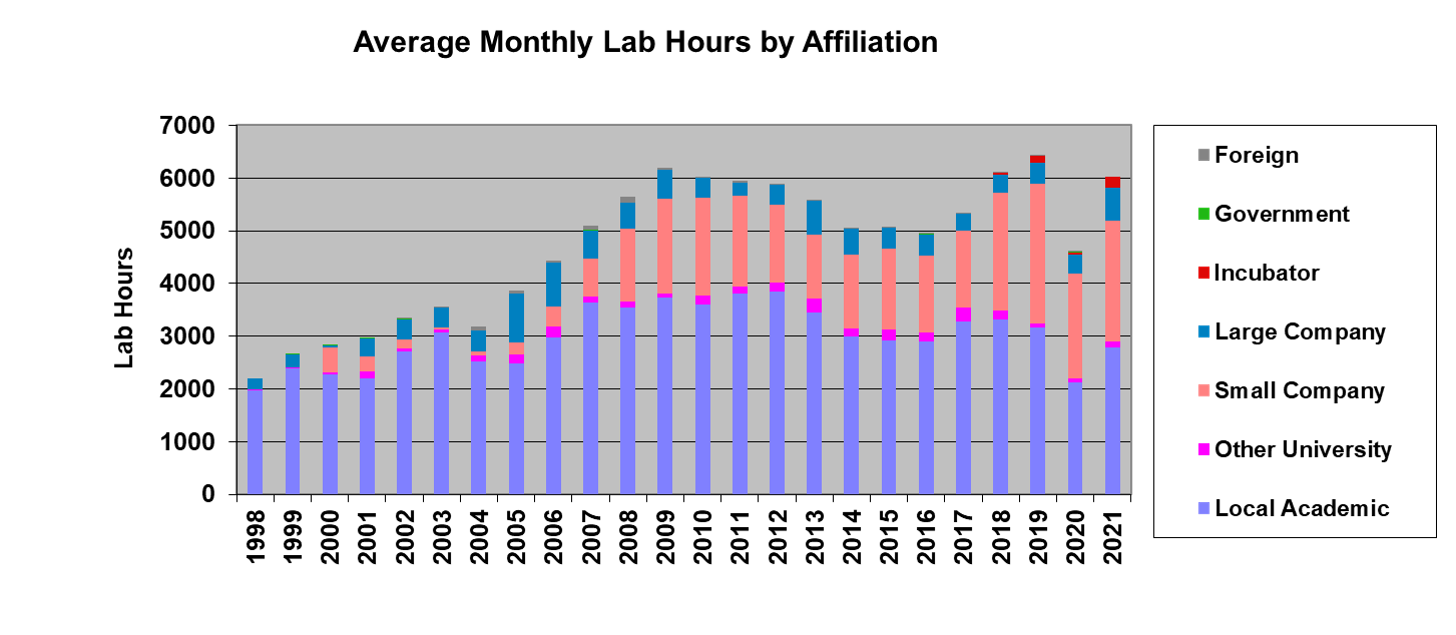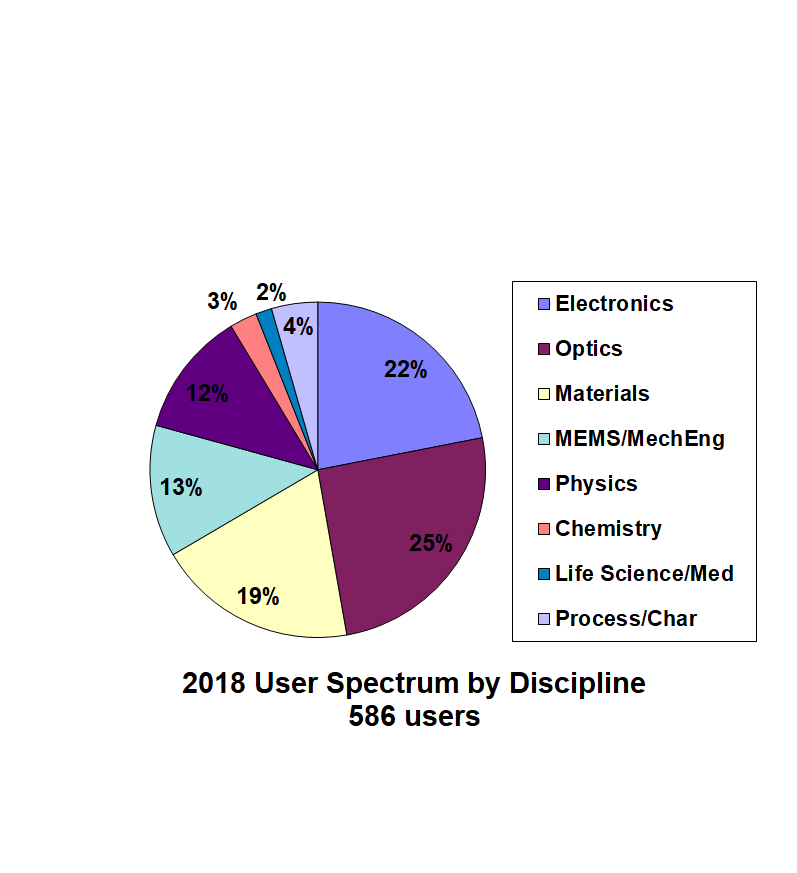Usage Data and Statistics: Difference between revisions
Jump to navigation
Jump to search
mNo edit summary |
mNo edit summary |
||
| Line 2: | Line 2: | ||
The UCSB Nanofabrication Facility has seen large user base growth extending from 1998 to the present. A decrease was seen from 2013-2015 which was primarily a result of reduced academic government funding stemming from sequestration. Since 2015, growth in both academic and industrial sectors has been observed with 2018 reaching the highest levels to date. The facility serves a broad range of disciplines with Optics, Electronics, Materials, MEMs, and Physics all being over 12% of use. |
The UCSB Nanofabrication Facility has seen large user base growth extending from 1998 to the present. A decrease was seen from 2013-2015 which was primarily a result of reduced academic government funding stemming from sequestration. Since 2015, growth in both academic and industrial sectors has been observed with 2018 reaching the highest levels to date. The facility serves a broad range of disciplines with Optics, Electronics, Materials, MEMs, and Physics all being over 12% of use. |
||
[[File:Yearly Users by Affiliation Through 2018.png| |
[[File:Yearly Users by Affiliation Through 2018.png|742x742px|Number of lab users per year from 1998-2018 by affiliation|none|frame]][[File:User Percentages by Discipline 2018.png|none|504x504px|User distribution by discipline for 2018|frame]] |
||
[[File:User Percentages by Discipline 2018.png|none|thumb|387x387px|User distribution by discipline for 2018]] |
|||
=== External Use of Facility === |
=== External Use of Facility === |
||
Revision as of 00:20, 19 January 2019
Numbers of Annual Users
The UCSB Nanofabrication Facility has seen large user base growth extending from 1998 to the present. A decrease was seen from 2013-2015 which was primarily a result of reduced academic government funding stemming from sequestration. Since 2015, growth in both academic and industrial sectors has been observed with 2018 reaching the highest levels to date. The facility serves a broad range of disciplines with Optics, Electronics, Materials, MEMs, and Physics all being over 12% of use.

